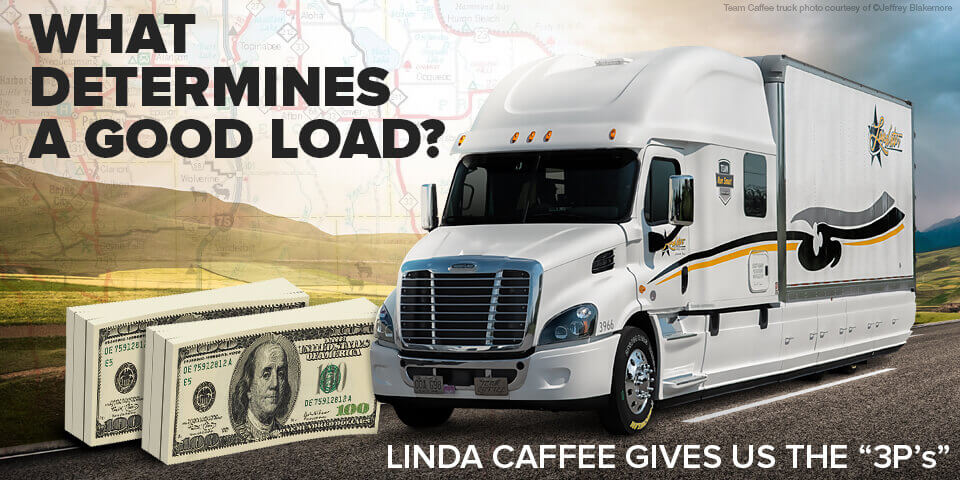Dollars & Sense

What Determines a Good Load?
One of the keys to success in expediting is to string together a series of good loads that make you money and take your business to a higher level.
But what exactly defines “good”? What determines a good load? EO spoke with veteran expediter Linda Caffee, with Team Run Smart, to get her advice. These “3 P’s” summarize the key points.
Profit
Does the proposed load pay enough?
“This is not always an easy question to answer because it’s not how much you make from a load, but how much money you get to keep. And that has to do with knowing your expenses,” says Caffee. “I can run to Texas, for example, much cheaper than I could run to West Virginia because of the hills, which adds to my fuel cost, or to the northeast, where you pay heavy tolls for the Jersey Turnpike or George Washington Bridge. So, does the load pay enough after you’ve accounted for all your expenses?”
But when it comes to pay, not all loads are equal. In the right situations, a relatively low-paying load might be worth accepting.
“If we’re in a bad area, and we were going to deadhead out of there on our own dime, but we’re then offered a load -- that changes our calculations. Even if that load is offered at a low figure, we might take it, if it means going to a good area. If we were going to have to eat the expense to deadhead anyway, why not make some money instead when we get the opportunity?”
Positioning
Will this load take you to a good area, where you’ll likely get another load and minimize your sit time or deadhead miles?
“If you take a load to Chicago, Cincinnati, St. Louis, Atlanta — you know that your chances are pretty darn good that you’re going to get a load coming out of those cities,” says Caffee. “But if you take a load to, say, Bozeman, Montana, that’s not usually a good freight area. So, you have to think: if the load pays good enough to go in there, and you have to deadhead out, can you still make money?”
When you decide to take on a load, there’s no guarantee that you’re going to have freight coming back out. So, the key factor to keep in mind is whether or not the odds (and the compensation) are high enough to make the load worth your while.
Preference
Does the load take you to an area that fits your comfort level and stress tolerance?
“It’s your own stress level that you have to look at,” says Caffee. “If you’re from a rural area, you might find that your comfort zone is to operate in western Texas, Arizona, Nevada or even somewhere in the midwest. So, you might prefer accepting loads that take you to those areas, instead of the northeast or cities, where you’re dealing with more traffic and stress.”
Another issue is the weather. Will that load take you into potentially hazardous road conditions? “During the winter, we start watching the weather much closer. If you want me to go where there’s a blizzard — I’m not doing it,” says Caffee.
But more than anything, a key factor to keep in mind before accepting a load is to make sure you’re thinking with a clear mind. “If you’re new to expediting and both you and your partner are exhausted, don’t take that load. Get some sleep. You have to get your head back on right. You need to have your rest to make a good decision,” advises Caffee.
The Bottom Line
What determines a good load? Only you (and your partner) can decide, depending on your own unique situation. But you can use these three P’s to serve as a guide to make a sound decision.
